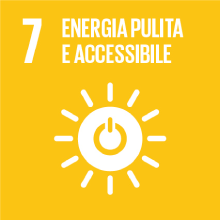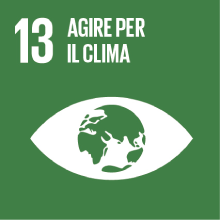BUSINESS AND SOCIETY
- Anno accademico
- 2023/2024 Programmi anni precedenti
- Titolo corso in inglese
- BUSINESS AND SOCIETY
- Codice insegnamento
- ECC089 (AF:486816 AR:268971)
- Lingua di insegnamento
- Inglese
- Modalità
- In presenza
- Crediti formativi universitari
- 6
- Livello laurea
- Corso Ordinario Secondo Livello
- Settore scientifico disciplinare
- SECS-P/08
- Periodo
- Annuale
- Anno corso
- 1
- Sede
- VENEZIA
- Spazio Moodle
- Link allo spazio del corso
Inquadramento dell'insegnamento nel percorso del corso di studio
Description:
The escalating ecological crisis, the widening wealth gap and the systemic risks posed by unregulated financial markets underline the urgent need to fundamentally rethink our patterns of production and consumption. Despite the growing recognition of the need for radical change, the path to transformative change is often hampered by various obstacles. This course is designed to equip students with the analytical tools to act as catalysts for change in their future roles as regulators, policy makers, analysts, managers and beyond. The course will give particular attention to the implication of the fact that decision makers are often “multiply embedded” in organizations, in places, in informal social networks, in more formal associations, and so on. Interdependent decisions and actions of multiple agents acting in a distributed environment are profoundly altering both decision-making and the strategy implementation processes in ways that demand some rethinking of the governance and management conceptual toolkit. Sociological and organization theories will be presented, discussed and applied to understand the conditions under which corporations and the network of their collaborators confront with environmental, social and governance decisions.
Risultati di apprendimento attesi
Prerequisiti
Contenuti
The accelerating ecological crisis, the growing gap between the rich and the poor as well as the systemic risks provoked by disconnected financial markets make it necessary to profoundly rethink routines of production and consumption. This requires a profound rethinking of business and society.
Class 2 & 3 – The role and responsibility of “corporations”
How has the organization of ownership, work, production, and consumption evolved? How did corporations emerge as the key business organization in capitalist countries? The course explores the responsibilities and roles of corporations in society, the expansion of corporate power and the emergence of corporate social responsibility.
Class 4 - Impact of business on society
How do companies have a (negative) impact on society and the environment? The course will address the extent to which companies contribute to the exacerbation of societal problems (e.g. global warming, inequalities, human rights abuses) and emphasize the distinction between 'how' companies’ impact (e.g. through products, production processes) and 'what' is impacted (environment, human rights, inequalities, etc.). The course will present current work on the main issues at stake.
Class 5 and 6 – Institutions, regulations, and business
How do institutions (including regulation) limit the damage that companies can cause? How do companies, in turn, respond to regulation? The class will analyze the emergence of mandatory regulations (national & sovereign) and voluntary measures taken by companies (e.g. private standards, levelling, etc.).
Evidence suggests a significant lack of effectiveness of such measures. The class will also examine the strategies companies have used to 'capture' policy makers and regulators (e.g. through direct and indirect lobbying), but also to 'greenwash' and 'offset' rather than act positively.
Class 7, 8, 9 – Decision making in firms and networks: wrongdoing in modern corporations
How do firms make decisions that lead to wrongdoing (or misconduct)? The course examines current theories that analyze the determinants of wrongdoing in modern firms. It will do so by reviewing literature dealing with decision making at the individual, organizational and inter-organizational levels of analysis (multiple embeddedness).
How do firms make decisions that lead to wrongdoing (or misconduct)?
Class 10, 11 and 12 – Organizing for a sustainable future
How and to what extent can business be an agent of positive change and impact? This part of the course explores the possible transformative practices that have the potential to reshape the relationship between business and society including new business models for sustainability.
Class 13 and 14 – Alternative forms of organizing
Are there alternative forms of organisation (to the corporation) that can bring about social change? What are the advantages of these new forms? The course will present evidence on how and to what extent for-profit and not-for-profit organisations can play a positive role in addressing current societal challenges. The course will also explain what criteria need to be met for these partnerships to form. In particular, the course will explore new business models, including alternative forms of organizing for social purposes.
Class 15 – Students’ projects presentation
Testi di riferimento
Modalità di verifica dell'apprendimento
● Participation: Active engagement in discussions and activities (20%)
● Students’ projects: Individual or group analysis of real-world cases (50%)
● Short Assay (1500 words): Exploration of a contemporary issue in business and society (30%)
Modalità di esame
Metodi didattici
Altre informazioni
The course will frame the firm as a social entity. Companies are increasingly accepting responsibilities that extend well beyond the immediate interest of shareholders for ethical reasons and for reasons of self interest. Among these latter: sustainability (it is in both society’s and the firm’s interests to sustain the ecosystem), reputation (CSR enhances the firm’s reputation with consumers and third parties); license to operate (firms need the approval and support of the constituencies on which they depend)
Internationalization
The course will frame management in the broader context of modern firms' business environment that goes beyond national borders. This will contribute to develop potential international managers.
Connections with practice
The course will host alumni and managers that will help students to connect theory to practice.
Obiettivi Agenda 2030 per lo sviluppo sostenibile
Questo insegnamento tratta argomenti connessi alla macroarea "Cambiamento climatico e energia" e concorre alla realizzazione dei relativi obiettivi ONU dell'Agenda 2030 per lo Sviluppo Sostenibile



